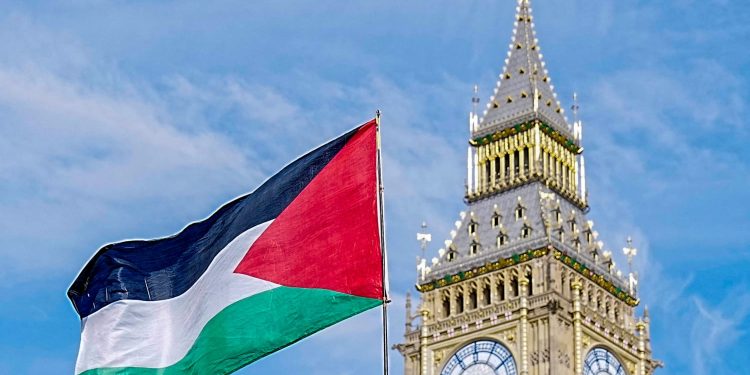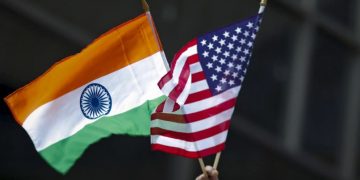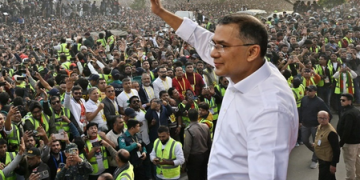I t was a significant moment in the history of the struggle of Palestinian people to get a state of their own, when French President Emmanuel Macron officially recognised the Palestinian state at the United Nations on 22 September.
Alongside France, which co-convened the meeting with Saudi Arabia in New York, Belgium, Luxembourg, Malta, Monaco and Andorra said they too were recognising a Palestinian state. Leaders from Australia, Canada, Portugal and the United Kingdom, which had formally made the move to recognise Palestine a day earlier also spoke at the meeting. Macron, of course, echoed the sentiment of the leaders when he said they all gathered there because “the time has come” to do their best to preserve the possibility of a two-state solution, which almost got erased in the unprecedented offensive by Israel on Gaza in the wake of the dastardly terror attack by Hamas on innocent Israelis on 7 October, 2023. Already 147 of the 193 UN member states have formally recognised Palestinian statehood as of April. This means over 80 per cent of the international community now recognises the state of Palestine. However, the numbers do not matter much, since mere recognition is not enough. What is needed, if the goal of Palestinian statehood is to be achieved, is more action. The fact that France, England and Australia have formally endorsed the two-state solution carries some weight and makes Israel more isolated.
There has been tremendous domestic pressure on British and French governments to throw their weight behind the Palestinians’ demand as Israel continues its war on Gaza, where more than 65,300 Palestinians have been killed and the enclave turned into rubble. Spain, Norway and Ireland recognised Palestinian statehood last year and Madrid imposed sanctions on Israel for its war on Gaza.
Also Read: Stirring The Pot
All the efforts would come to naught unless and until the US is convinced to approve the plan, since it has the veto power in the UN Security Council to scuttle any move to make Palestine state a reality. This explains why Israeli Prime Minister Benjamin Nentanyahu pooh-poohed the flurry of recognitions and called the exercise an encouragement to terrorists, meaning Hamas. US President Donald Trump on 23 September blasted the UN while addressing the UN General Assembly, saying all that the international organisation does is “write a really strongly worded letter and then never follow that letter. It’s empty words and empty words don’t solve wars.”
Incidentally, the US did not attend the one-day summit hosted by France and Saudi Arabia, which focused on plans for a two-state solution to the conflict. Fellow G7 states, Germany and Italy, were also absent. Japan and South Korea too, are not ready to validate the two-state solution because of their ties with Israel. While pondering on this issue, it has to be kept in mind that the west European nations, which have played a key role in accepting a two-state theory, have problems amassed at home. The number of immigrants from the Middle East has increased in recent years, resulting in new political pressure groups forming in those countries and forcing the politicians to adopt unnatural postures. Palestinian Authority President Mahmoud Abbas was too happy over the development and praised the countries that had recognised Palestine. He made his statement to the conference by video because he was denied a visa by the Trump administration to attend the UNGA this week. Abbas assured the gathering that Hamas would not in any way be accommodated in the Palestinian state. Israel and the US boycotted the summit, with Israel’s UN ambassador, Danny Danon, describing the event as a “circus.”
UN Secretary-General Antonio Guterres called the two-state solution the only viable path towards peace after years of failed negotiations and ongoing violence. He also said the statehood for Palestinians “is a right, not a reward,” rejecting US and Israeli claims that it was a reward for Hamas. Israel does not show any sign of being bothered by the fresh wave of recognition of the two-state solution which is in tatters in the face of its continued offensive in Gaza. The fact that major European powers have broken ranks may, it is hoped, at least put a halt to the ongoing attacks.
On the same day as recognition was announced, at least 55 Palestinians were killed in Israeli attacks on Gaza. As long as it does not come with concrete actions, such as sanctions, arms embargo, and the implementation of a no-fly zone in occupied Palestine with a coalition of forces from the international community to alleviate the suffering of the people, there is no reason to believe that any tangible result would be visible. It seems highly improbable, yet one has to wait and watch whether these countries will be logistically capable to take any hard action against Israel.






































